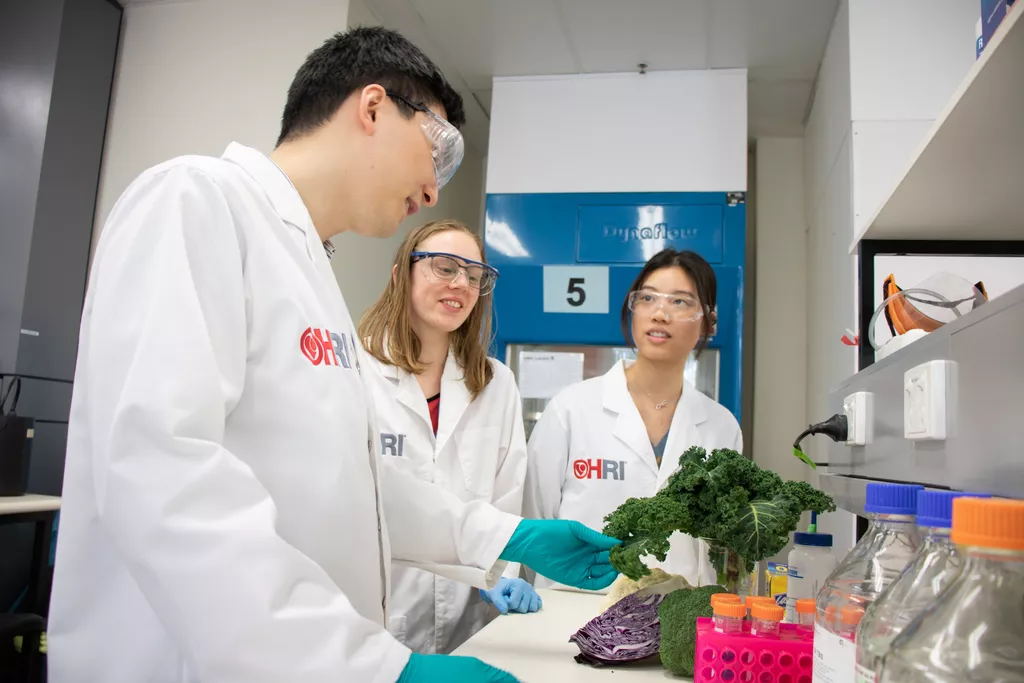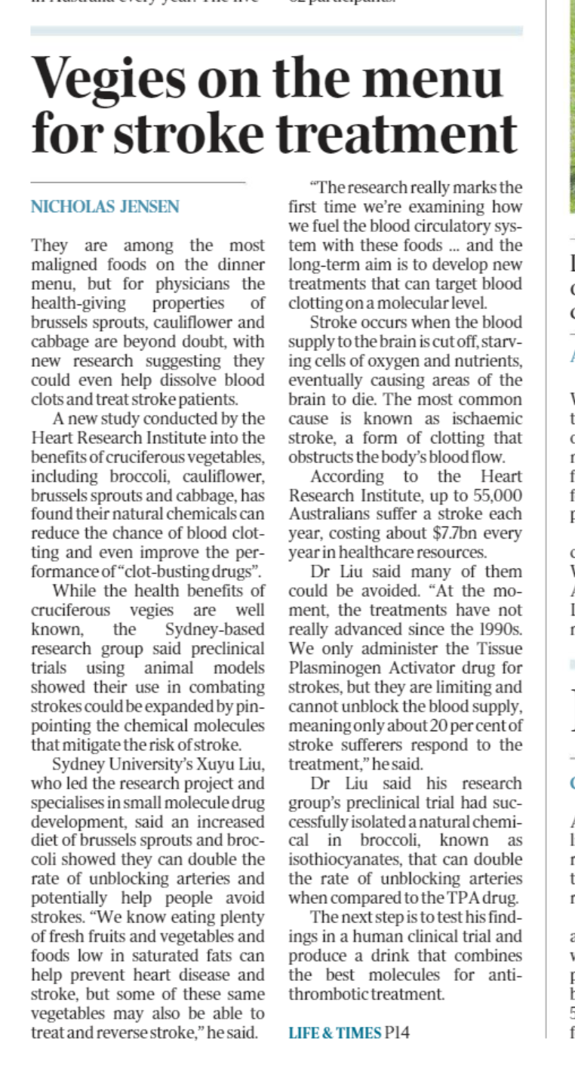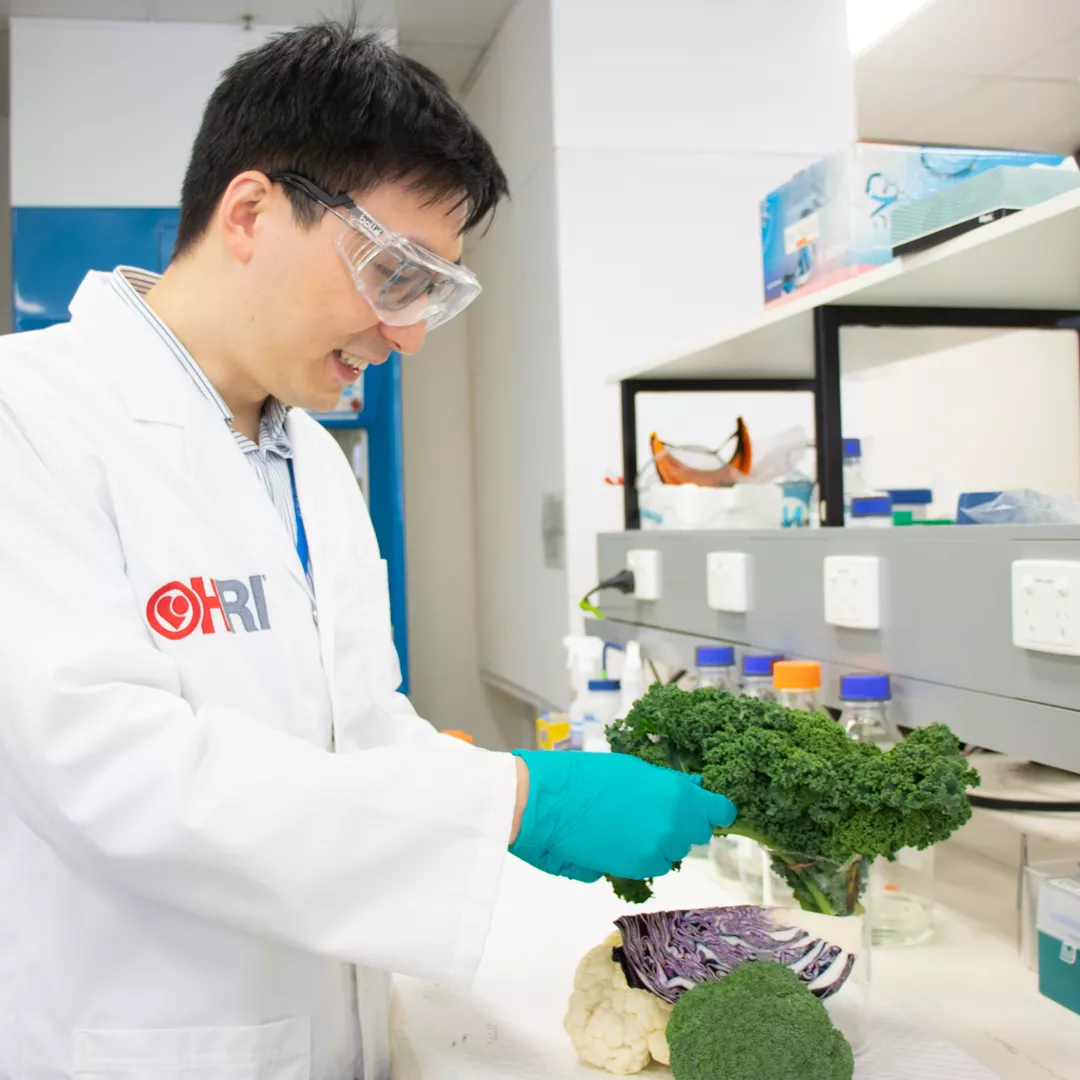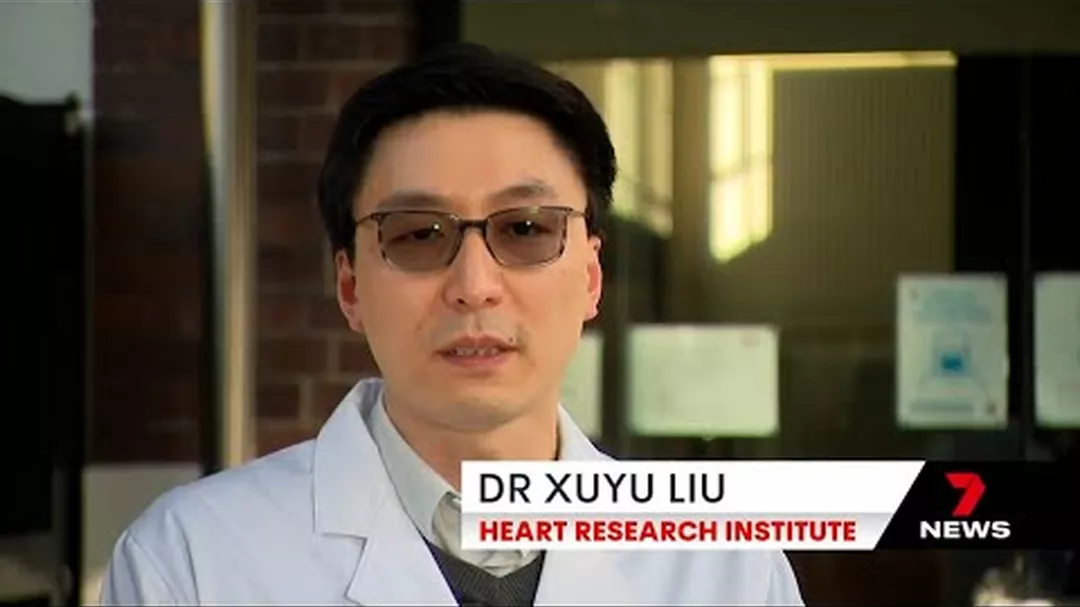
Researchers at the Heart Research Institute (HRI) have discovered Brussels sprouts and broccoli can help dissolve blood clots and improve the performance of clot-busting drugs, which could help treat a stroke.
Scientists from HRI are working on a first-of-its-kind study to determine if natural chemicals in cruciferous vegetables, like broccoli, cauliflower, Brussels sprouts and cabbage (often the poster child for vegetable hatred) can treat stroke.
The research led by Dr Xuyu Liu is for the first time looking at how we fuel our blood circulatory system with these vegetables, for inspiration when it comes to coming up with a new treatment for thrombosis.

“We know eating plenty of fresh fruits and vegetables and foods low in saturated fats can help prevent heart disease and stroke, but can some of these same vegetables treat and reverse stroke? I think it can and my team is working to prove it at the molecular level.”
Stroke occurs when the blood supply to the brain is cut off, starving brain cells of oxygen and important nutrients, resulting in impacted areas of the brain dying. The most common cause of stroke is a blood clot obstructing blood flow, known as an ischaemic stroke.
Stroke is a leading cause of disability in New Zealand, and every day, about 24 New Zealanders experience a stroke.
Since the approval of tissue plasminogen activator (tPA) for use in stroke in 1996, there have been no other drugs approved for urgent treatment of ischaemic stroke. The administration of tPA to patients suffering stroke, or "thrombolysis", has very limited power to unblock the blood supply, meaning just 20 per cent of stroke sufferers respond to this treatment, leaving 80 per cent of patients with disability or regional brain death.
In an exciting discovery, Dr Liu has already proven in pre-clinical trials that isothiocyanates found in broccoli can double the rate of unblocking arteries by tPA and increase the success rate to 80 per cent in laboratory models.
“On its own, there was no change, but when we combined the isothiocyanates with tPA in laboratory models, blood clots dissolved as much as 80 per cent because the molecules target platelet activity in a way that tPA does not.
“This natural product also successfully targeted thrombosis selectively, without affecting the body’s protective response to bleeding. This means they are potentially safer drug candidates, with fewer side effects, for antithrombotic treatment.
“Current treatments are a double-edged sword – by clearing blot clots it also means a patient has an increased risk of bleeding in the brain should they need emergency surgery.
“We are looking for clues in nature to find this magic anti-clotting drug which can work where it’s needed but also still allow patients to have antithrombotic treatments,” he said.
Dr Liu believes combining modern technology with natural products will accelerate treatment options for stroke.
“Regulatory medical agencies have a very low risk tolerance for antithrombotic therapeutics, which means new medications for stroke, heart infarction and the other thrombotic complications are very difficult to pass,” said Dr Liu.
“If we can harness naturally occurring ingredients, we can speed up this pathway of cardiovascular drug development,” he said.
Dr Xuyu Liu in The Australian

The Australian, 18 August 2022
Other media
2GB Morning Radio, 18 August 2022
2GB Afternoons with Deborah Knight, 18 August 2022
Related research areas



